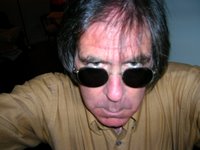 On the 2nd in 1535, Jacques Cartier, the intrepid adventurer not the manufacturer of tasteful jewelry and watches, began settlement of what was to become Montreal, Quebec, Canada. I shouldn’t hold it against Cartier, though I will, but I have not cared for Montreal since a friend and I were refused entrance to a restaurant there because we could not speak French and we were wearing blue jeans. I suppose that the Quebecois aren’t all bad and they do serve at least one important function: they give the French someone to look down on.
On the 2nd in 1535, Jacques Cartier, the intrepid adventurer not the manufacturer of tasteful jewelry and watches, began settlement of what was to become Montreal, Quebec, Canada. I shouldn’t hold it against Cartier, though I will, but I have not cared for Montreal since a friend and I were refused entrance to a restaurant there because we could not speak French and we were wearing blue jeans. I suppose that the Quebecois aren’t all bad and they do serve at least one important function: they give the French someone to look down on.
Cartier gets credit for giving the name Canada to … well, Canada.
Mark Twain while on a trip to Montreal remarked, "This is the first time I was ever in a city where you couldn't throw a brick without breaking a church window."
Cartier was a very busy beaver. In 1541, he also started the colony of Charlesbourg-Royal but it was abandoned in 1542. The site is the location of present day Cap-Rouge, Quebec.
 On the 7th in 1769, English explorer Captain Cook stumbled upon New Zealand. Cook was the first European to set foot on New Zealand since Abel Janszoon Tasman had attempted, but failed, to establish a colony in New Zealand in 1642. William Bligh, of Mutiny on the Bounty fame, was Cook’s sailing master. George Vancouver, who would be among the first to explore the coasts of Washington and Oregon in America’s Pacific Northwest, was one of the midshipmen on Cook’s second voyage of discovery. Tasman is generally given credit for having discovered New Zealand; despite the fact that people known as the Maori since at least the ninth century had continuously inhabited this island.
On the 7th in 1769, English explorer Captain Cook stumbled upon New Zealand. Cook was the first European to set foot on New Zealand since Abel Janszoon Tasman had attempted, but failed, to establish a colony in New Zealand in 1642. William Bligh, of Mutiny on the Bounty fame, was Cook’s sailing master. George Vancouver, who would be among the first to explore the coasts of Washington and Oregon in America’s Pacific Northwest, was one of the midshipmen on Cook’s second voyage of discovery. Tasman is generally given credit for having discovered New Zealand; despite the fact that people known as the Maori since at least the ninth century had continuously inhabited this island.








